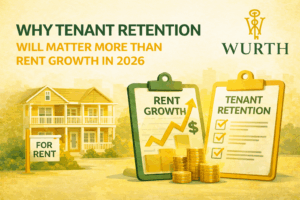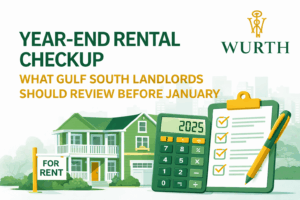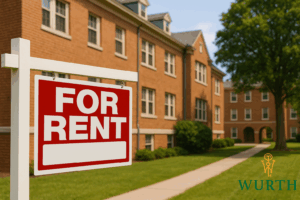
Rent increases are tricky. Not because they’re unusual, anyone who has rented a home for more than a year knows they’re part of the deal, but because the way they’re handled can completely change how tenants react. Sometimes a tenant shrugs and says, “Makes sense.” Other times, the same number sparks frustration, even hostility. What’s happening here isn’t just math. It’s psychology.
Understanding that psychology matters for landlords and property managers alike. After all, steady rent growth keeps investments healthy. But long-term tenants are valuable too, and the last thing most owners want is to lose a reliable renter over a poorly timed or clumsily explained increase. So, what actually makes tenants accept rent hikes, and what makes them push back?
Timing matters more than most realize
In real estate, timing is everything, and rent increases are no different. Raising rent right after a maintenance issue or a negative experience almost guarantees friction. On the flip side, tenants who feel cared for are far more open to a modest adjustment.
Studies in behavioral economics suggest that people don’t mind paying more if they believe they’re getting fair value. The catch? Their perception of value is shaped by context. A tenant who has just had a quick repair completed or noticed the property being well-kept is more likely to think, “Okay, I get it. Costs rise; my rent will too.”
Wait too long or choose the wrong moment, though, and even a small bump can feel like a slap in the face. That’s why many property managers recommend syncing increases with lease renewals rather than dropping the news mid-lease. It feels structured, expected, almost routine.
Clarity beats surprise
One of the biggest mistakes landlords make is presenting rent increases as a fait accompli with no context. A notice arrives with a number, and tenants are left wondering why. That silence creates suspicion.
Tenants are more likely to accept an increase when it’s explained plainly. Rising property taxes. Insurance hikes. Higher maintenance costs. None of these are thrilling reasons, but they’re believable and, more importantly, understandable. Transparency shifts the conversation from “my landlord is greedy” to “yeah, that tracks with everything else going up.”
Property managers often play an unsung role here. Because they handle communication regularly, they know how to frame increases in a way that feels professional, not personal. That layer of distance can soften the blow.
The number itself is only half the story
There’s a psychological threshold with numbers. A $75 increase may look wildly different to a tenant paying $900 than to one paying $1,800, even though it’s the same dollar amount. Percentages matter. Round numbers matter. Anchoring matters too, if tenants see comparable units nearby listed higher, their rent increase suddenly looks like a deal.
In fact, perception of fairness almost always outweighs the actual cost. That’s why some property managers recommend small, steady increases rather than dramatic jumps after years of no change. A gradual climb feels predictable. A sudden leap feels punitive, even if the total rent is still competitive.
The role of tenant-landlord relationships
This part can’t be overstated. People accept change from someone they trust. If a tenant feels ignored, disrespected, or nickel-and-dimed, any increase looks like exploitation. But if they’ve consistently experienced responsiveness and professionalism, they’re far more likely to stay put, even if the new rent stings a little.
Interestingly, it’s not just about big gestures. Returning calls, handling repairs promptly, and maintaining common areas all quietly reinforce the sense that the property is worth the price. Tenants don’t always articulate this, but their willingness to renew at a higher rate often rests on those small, day-to-day interactions.
Why some tenants walk away anyway
Even when landlords do everything right, some tenants leave. Personal finances change, new opportunities arise, or the increase simply pushes the rent past their limit. It’s not always a matter of psychology; sometimes it’s just arithmetic.
And yet, even in those cases, the way the increase was presented matters. A tenant who departs on good terms is far less likely to leave a scathing review or discourage others from renting the property. That reputation value is worth protecting.

So, when do tenants actually accept increases?
Pulling the threads together, the answer looks something like this:
- When the timing feels fair.
- When the reasons are clearly explained.
- When the increase is steady, not shocking.
- When the relationship feels respectful.
- When the new rent still lines up with local market reality.
Miss one of those, and acceptance rates drop sharply. Get most of them right, and tenants may not love the news, but they’ll likely live with it.
Final thoughts
Rent increases are inevitable. Inflation, taxes, insurance, and preventive maintenance all rise over time. But whether tenants accept those increases without a fight depends less on the number itself and more on how the process is handled.
Property managers can make a real difference here. They understand market benchmarks, handle communication with tact, and help balance owner needs with tenant psychology. That balance is what keeps occupancy rates high and turnover low.
At Wurth Property Management, we know rent adjustments are part of a long-term investment strategy. But we also believe they don’t have to create unnecessary conflict. If you’re looking for guidance on when and how to make these changes, we’d be glad to help find the right approach.
FAQs
1. Why do tenants sometimes accept rent increases without pushback?
A: Because they see value in the property, understand the reasons given, and feel the timing is fair.
2. How does timing affect rent increase acceptance?
A: Increases are better received when tied to lease renewals and not after negative experiences.
3. Is it better to raise rent gradually or in larger jumps?
A: Gradual, predictable increases are generally easier for tenants to accept.
4. What role do property managers play in rent increases?
A: They frame communication clearly, provide market context, and reduce friction between owners and tenants.
5. Can tenants still leave even if the increase is reasonable?
A: Yes. Sometimes personal finances or life changes outweigh fairness or timing.






